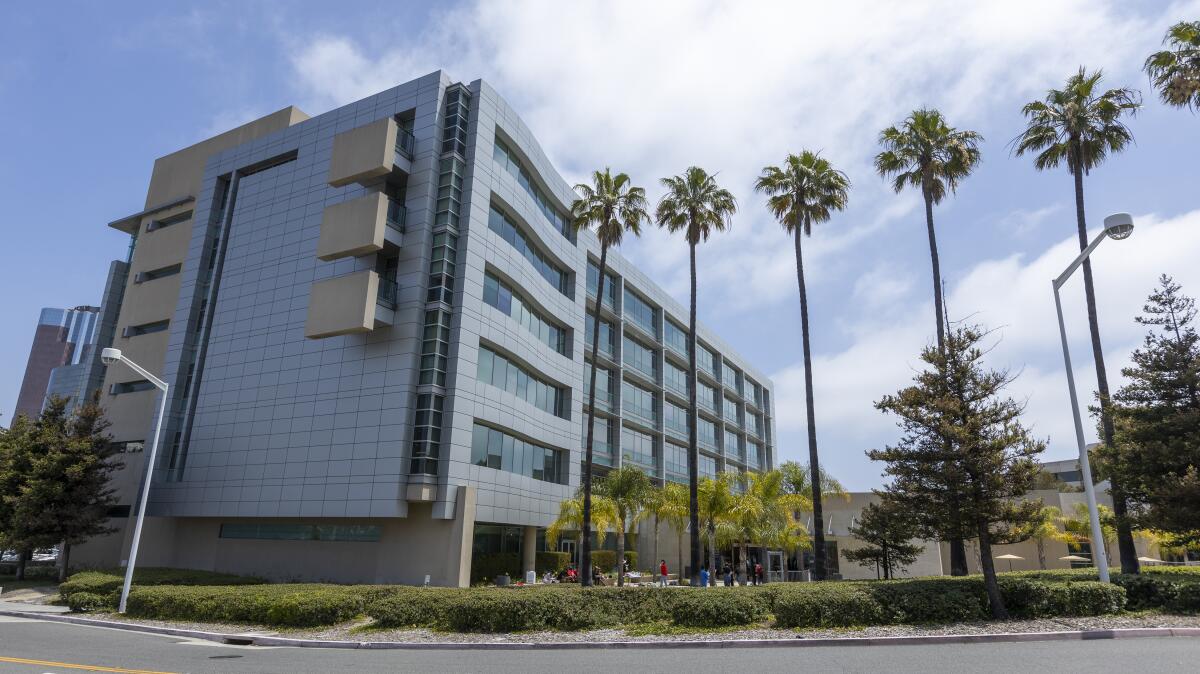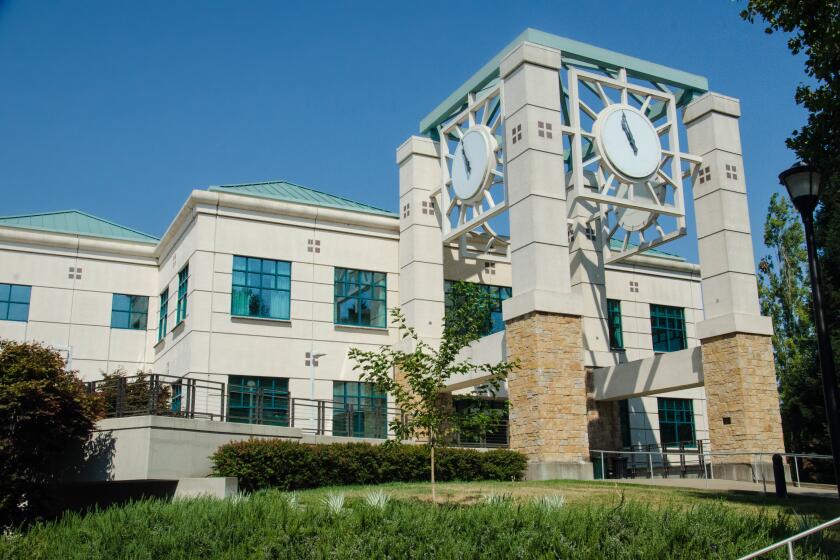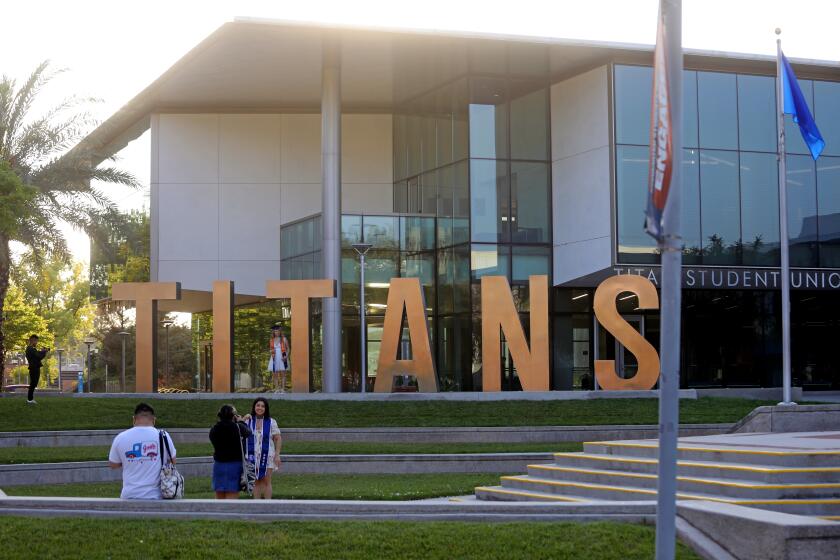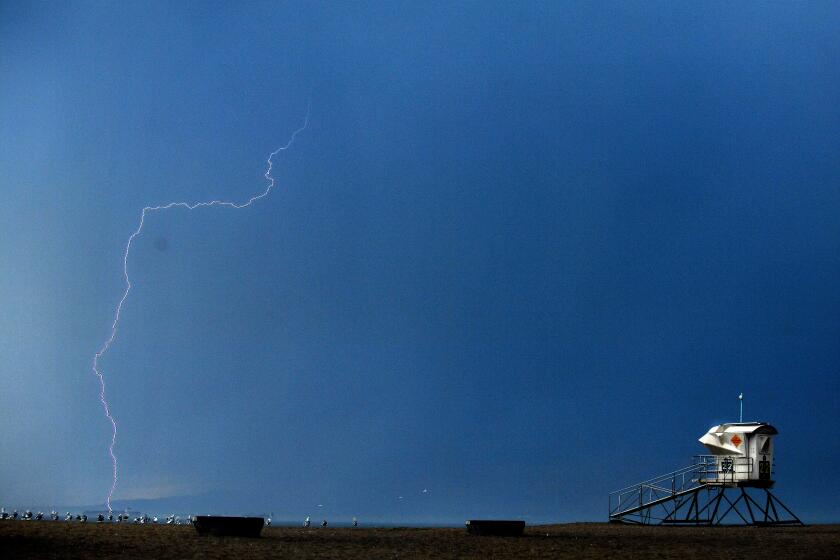Widespread flaws found in Cal State system’s handling of sexual misconduct cases

- Share via
An outside report released Wednesday delivered a sweeping indictment of how sexual misconduct cases are handled by California State University and recommended wholesale reforms to improve accountability in the nation’s largest four-year public university system.
The report by the law firm Cozen O’Connor, presented at a meeting of the CSU Board of Trustees, found that the chancellor’s office does not track sexual harassment and sexual misconduct cases systemwide. It identified flaws in how campuses collect data, widespread distrust by students and employees in how wrongdoing is addressed and a low number of investigations — a majority of which never result in a formal resolution.
The presentation, however, included no specific data on the investigation numbers.
The report was ordered by the trustees last year after the resignation of the previous chancellor, Joseph I. Castro, who was swept up in a controversy over his handling of sexual harassment and retaliation reports against a top administrator when he was president of Fresno State.
Since then, Times investigations have found inconsistencies in the way reports of sexual misconduct are handled by officials across the 23-campus system and detailed how reports of wrongdoing against top administrators were not investigated by school officials and senior administrators in the chancellor’s office in Long Beach.
Recent revelations about how California State University handled sexual harassment and workplace retaliation complaints have rocked the nation’s largest four-year public university system.
The Cal State system’s interim chancellor, Jolene Koester, acknowledged after the Cozen O’Connor findings were presented that the system has “fallen short” in its response to reports of sexual harassment, sexual misconduct and retaliation.
“Many of these report findings are difficult to hear,” she said, adding that addressing the problems “is going to be uncomfortable.”
Cozen O’ Connor said it visited each of the campuses and received survey feedback from nearly 18,000 students, staff, administrators and faculty across the Cal State system.
A final version of the report, along with findings for each campus, will be released in June. The recommendations presented to the trustees include a sweeping change in the role of the chancellor’s office to better spot trends and breakdowns in data collection. The report also called for creating a pool of trained investigators to assist campus personnel, who are often overwhelmed by multiple duties and not capable of thoroughly investigating cases.
“In recent years, the examples of unprofessional, at least, and criminal, at most, behavior ... that have come to us have been shocking,” said Lt. Gov. and ex-officio CSU trustee Eleni Kounalakis. “If we take this report today, and we continue to get failures — that, to me, is unacceptable.”
A top concern was how campuses collect data on sexual harassment and sexual misconduct that are used to create annual public reports.
“We saw incredibly disjointed and frankly unreliable conclusions,” Gina Maisto Smith, one of the attorneys who led the review, said of campus reports.
CSU has so far paid more than $477,000 to Cozen O’Connor for work at 10 campuses and the chancellor’s office.
Kathryn Forbes, a professor of women, gender and sexuality studies at Fresno State, said Wednesday that the presentation failed to address the role of the CSU general counsel’s office in providing input on misconduct cases and did not provide data on low investigation rates at campuses.
“We need comparative data. Cozen O’Connor did not offer any,” said Forbes, who participated in systemwide meetings with the law firm.
A Times analysis of CSU records found that officials completed investigations for about 3% of more than 2,600 reports of sexual harassment and sexual misconduct received last year across the 23-campus network for the 2021-22 school year. The reports are made under Title IX, a federal law prohibiting sex discrimination.
Experts said an independent investigation should have been conducted into claims against Cal State Fullerton’s president, who denied doing anything wrong.
CSU records show some cases were informally resolved before an investigation by way of educational training, suspensions, terminations and expulsions. In hundreds of instances, students and employees opted for assistance outside an investigation — such as referrals for a victim’s advocate or counselor.
Some campuses told The Times that the data did not accurately reflect the number of investigations. The chancellor’s office said that a handful of campuses reported additional data “that created inconsistencies.”
The data “do not reflect pending investigations, or capture less formal inquiries conducted by the campus Title IX office that do not require an investigation,” CSU spokesperson Amy Bentley-Smith said.
The Times analysis of campus records found that in more than 1,000 instances, the alleged victims in misconduct reports did not respond to subsequent outreach. In those cases, the records did not detail attempts to contact people before concluding that a student or employee did not want to move forward with an investigation or require other help.
In recent interviews with The Times, students, alumni and current and former employees expressed distrust in their campus’ ability to protect them from retaliation or damage to their reputation.
Those who did comply with an investigation were not always satisfied with the outcome.
Melanie Mendoza Gasca, 20, a Cal State L.A. student majoring in English, said The Times’ findings on misconduct investigations were disturbing.
“I just can’t believe that this is the reality of our justice system in our schools,” said Gasca, who filed a sexual misconduct case but declined to discuss it because campus officials told her it was confidential.
“It has to change. This is unacceptable.”
More to Read
Sign up for Essential California
The most important California stories and recommendations in your inbox every morning.
You may occasionally receive promotional content from the Los Angeles Times.

















